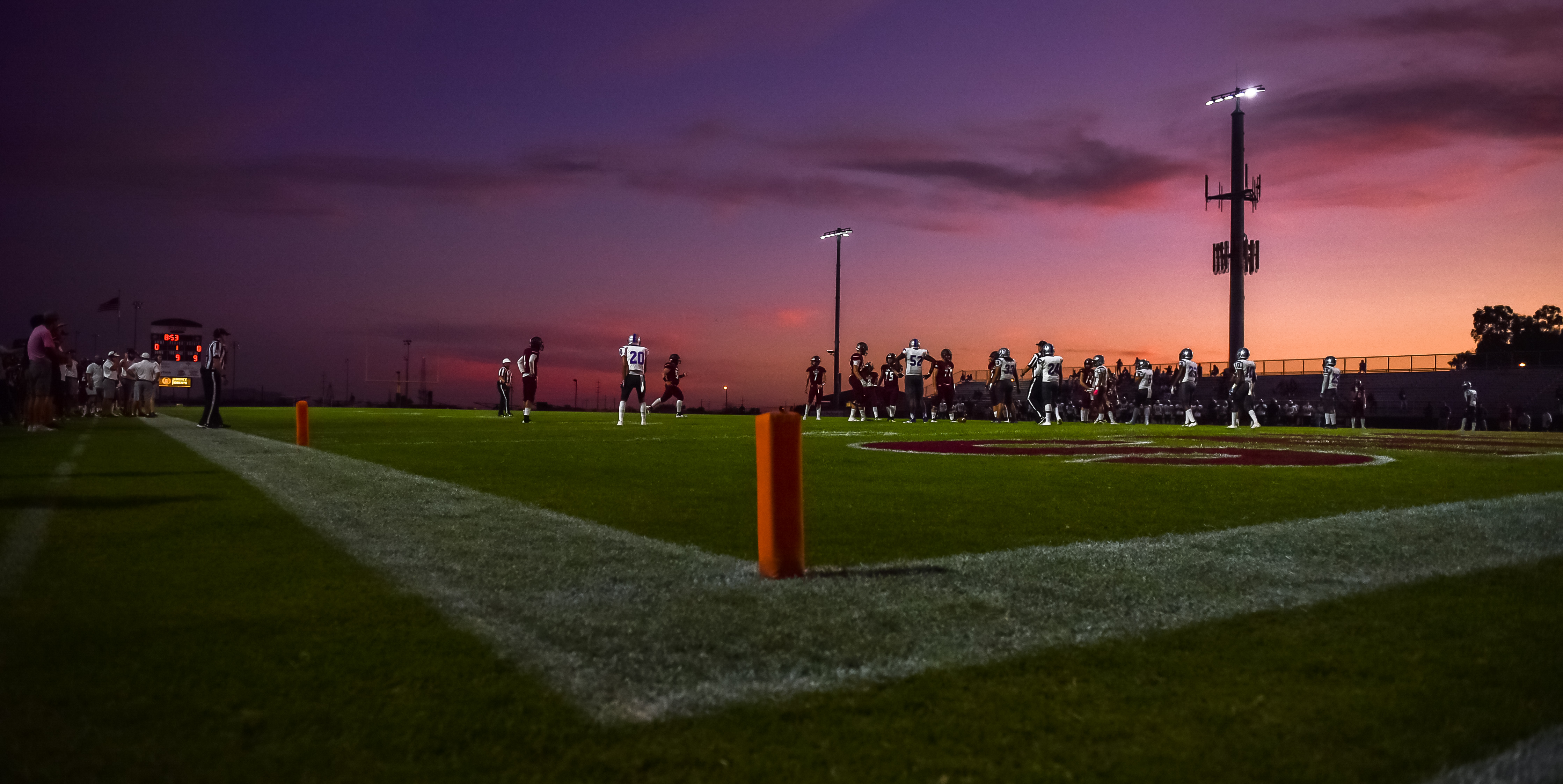Instant reaction to weekend developments …
1. A loss could be a win
Use whatever word comes to mind to describe Oregon’s victory over Washington (emphatic, resounding, dominating, etc.). The Hotline prefers the term multifaceted.
Because the 49-21 demolition Saturday evening in Autzen Stadium had as many layers as it did Oregon touchdowns.
It secured the Ducks’ first undefeated regular season since 2010, which doesn’t mean much in the broader context of the program’s immediate goals. (They had already clinched a berth in the Big Ten championship game.)
It removed a boulder off coach Dan Lanning’s back after three prior losses to the Huskies, which is also meaningless against the backdrop of the 2024 season.
And it created a win-win situation for the Ducks next weekend, and that, folks, is extremely relevant to the prime mission in Eugene: Winning the national championship.
Oregon (12-0) now has two possible paths into the College Football Playoff, but they are not created equal.
— If they beat Penn State on Saturday in Indianapolis, the Ducks will enter the CFP as the No. 1 overall seed, with a bye into the quarterfinals and a date with the winner of the No. 8-9 game in the Rose Bowl on New Year’s Day.
That’s not the ideal scenario that you might expect, because the No. 8-9 winner could very well be a two-loss team from the SEC. Or it could be Ohio State.
In other words, Oregon’s opponent would be a team that can match the Ducks at the line of scrimmage and possesses the playmakers needed to keep pace with the Ducks’ high-powered attack.
Also, Oregon would be carrying the weight of an undefeated record — the nation’s only undefeated record — through three grueling rounds of the CFP.
— If the Ducks lose to Penn State, they likely would drop to the No. 5 seed in the CFP, which is assigned to the highest-ranked at-large team. (The top-four seeds, and opening-round byes, go to the highest-ranked conference champions.)
As the No. 5 seed, Oregon would host an opening-round game on Dec. 20-21 against the No. 12 seed and, with a victory, advance to the quarterfinals to face the No. 4 seed.
Those opponents are likely to be the champions of the Mountain West (Boise State or UNLV) and the Big 12 (Arizona State or Iowa State). We don’t know which conference winner will be the No. 4 seed and which will be the No. 12, but the difference in personnel is so slim that it won’t matter all that much to the Ducks.
Oregon would have two weeks off, then play a Big 12 or MW opponent at home. With a victory, the Ducks would have 10 days to prepare for a Big 12 or MW team in the quarterfinals.
In our view, the preferred path is the second: A loss in the Big Ten title game, the No. 5 seed, a home game against the No. 12 and then a neutral site matchup with the No. 4.
We aren’t suggesting the Ducks should lose on purpose in Indianapolis. But it’s clear the victory over Washington created a win-win scenario: Either they are the Big Ten champions and the No. 1 seed, or they lose the title game and have what just might be an easier path into the semifinals.
Which is where they want to be.
2. The Tempe turnaround
As expected, the Big 12 was the last to set its matchup for the conference championship game — no other power conference entered the final weekend with more teams alive in the title chase.
But as the results rolled in over the course of the weekend, the list of contenders dwindled … until there were three.
Arizona State was the first team to secure a berth in Arlington, thanks to the combination of its victory over Arizona and TCU’s win over Cincinnati.
But the Sun Devils didn’t learn the identity of their opponent until 10:45 p.m. (Pacific), when Brigham Young beat Houston to eliminate Colorado.
They will face Iowa State, which defeated Kansas State 29-21 on Saturday in a frigid edition of Farmageddon.
In this unprecedented season, with so many gobsmacking results and fantastic finishes — Georgia needed eight overtimes to fend off Georgia Tech on Friday night — the Sun Devils stand on the short list of amazing stories.
They were 3-9 last season and picked to finish 16th in the Big 12 this fall but combined a first-year quarterback, a second-year coach and a forever tailback to produce a magical run to the conference title game.
ASU is four quarters from the CFP, folks.
Think about that.
3. The Tucson collapse
Once you have finished pondering ASU’s improbable rise, take a moment to consider ghastly Arizona’s fall.
One year after finishing with 10 wins, the Wildcats ended their season with eight losses — a stunning turn of events that left many fans calling for the school to terminate coach Brent Brennan after his first season.
Brennan deserves every ounce of the criticism, and we aren’t prepared to state definitively that he will be back for 2025.
But dismissing the head coach after one season for performance alone — and not for an off-the-field issue that embarrasses the university — is a step rarely seen across the sport.
Our suspicion is that Brennan, who has deep ties to the school, will return with a new coaching staff and extremely short leash.
If the Wildcats aren’t bowl-eligible at this time next year, his tenure could end.
4. November fade
Few teams in any corner of the country collapsed down the stretch as completely as Washington State.
A fortnight ago, the Cougars were 8-1, ranked 18th and on the outskirts of the playoff race.
Then came the ugly loss at New Mexico, followed by an equally surprising stumble at Oregon State.
But the topper came Saturday night when Washington State blew a double-digit lead, failed to score in the second half and lost, at home, to lowly Wyoming.
As unfathomable as it might seem, the Cougars lost all three games as double-digit favorites:
— They were 10.5-point favorites at New Mexico and lost by three.
— They were 11-point favorites at Oregon State and lost by three.
— They were 17-point favorites over Wyoming and lost by one.
Perhaps a comparable three-game stretch has unfolded somewhere across major college football at some point over the years, but we are not aware of it.
Coach Jake Dickert must take a thorough look at every aspect of his program.
What happened to the Cougars (8-4) over the past three weekends is unacceptable on every level.
5. Bowl math update
With conference play complete, the postseason picture is finally taking shape on the West Coast.
Any Pac-12 legacy school that is bowl-eligible but not involved in the CFP will participate in the same bowls affiliated with the conference over the years, from the Alamo on down to the Independence.
Specific assignments will be determined by the bowls themselves, but we know that seven of the 12 schools are eligible: Arizona State, Cal, Colorado, Oregon, USC, Washington and Washington State.
With Oregon assured of a CFP berth, each team will move up one spot in the lineup from its natural position. If Arizona State also qualifies for the CFP, everyone would jump two rungs.
In other words, at least one of the three 6-6 teams (Cal, USC and Washington) will move into a bowl — hello, Las Vegas — that typically hosts teams with eight or nine wins.
Related posts:

(AP Photo/Darryl Webb)
Pac-12 basketball: A breakdown of the seeds, matchups and nitty-gritty as the conference tournament looms Wilner Hotline – Pac-12 recruiting: How the top 2023 prospects would rank in a future NFL Draft
Wilner Hotline – Pac-12 recruiting: How the top 2023 prospects would rank in a future NFL Draft
 Pac-12 recruiting: UCLA’s big weekend, ASU looks to Texas, Smalls to Colorado and Oregon’s future QB room
Pac-12 recruiting: UCLA’s big weekend, ASU looks to Texas, Smalls to Colorado and Oregon’s future QB room

(AP Photo/Marcio Jose Sanchez)
Wilner – Power Five revenue projections for FY2023: Comcast mess leaves Pac-12 far behind
